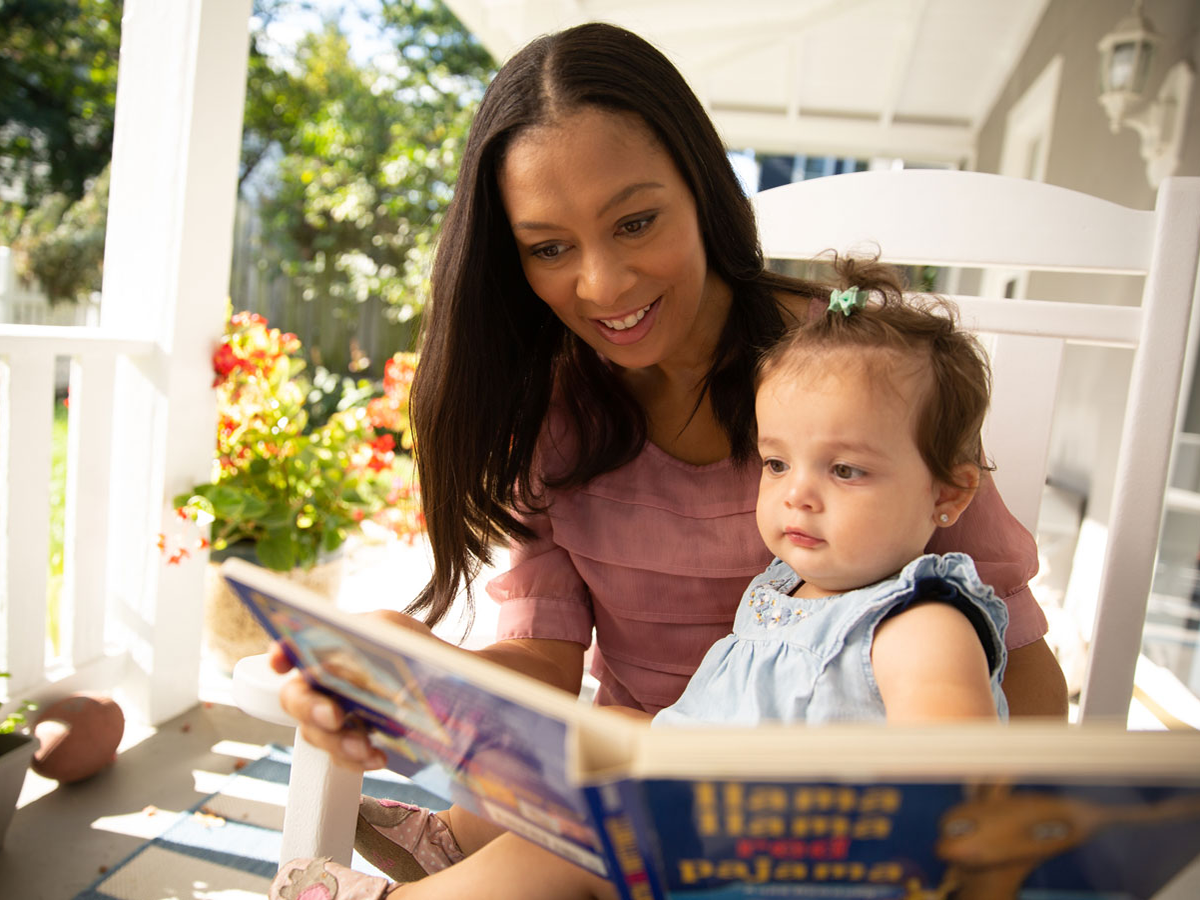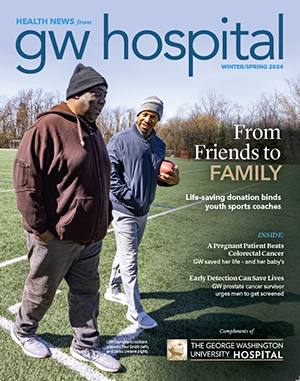 Claudia Acosta was 20 weeks along in her pregnancy when she experienced abdominal discomfort that was different from her usual morning sickness. After several visits with her OB/GYN and trying treatments without relief, she was sent to GW Hospital.
Claudia Acosta was 20 weeks along in her pregnancy when she experienced abdominal discomfort that was different from her usual morning sickness. After several visits with her OB/GYN and trying treatments without relief, she was sent to GW Hospital.
In the GW Labor and Delivery unit, an X-ray revealed a mass in Acosta’s abdomen. After a CT scan showed that mass was blocking her colon and growing, she spoke with Matthew Ng, MD, a colorectal surgeon at GW Cancer Center.
“My husband dropped me off at the hospital and I told him, ‘I’ll text you in a couple of hours when I’m ready to be picked up,’ ” Acosta recalls. “When the colorectal doctors told me that I wasn’t going to be leaving and that I needed to have surgery, I called and told him to come over right away.”
A Serious, Unexpected Surgery

A diagnosis of colorectal cancer and major surgery were the very last things Acosta thought she’d face during her pregnancy. “I remember being just shocked,” she says. “I didn’t know what that meant for me and my baby.”
Fortunately, the physicians at GW were confident that the surgery, and the chemotherapy to follow, would be safe for the baby. To help, the surgeons used virtual reality (VR) technology to plan the surgical procedure around the baby.
“I think the fact that they seemed so confident made me feel more at ease,” Acosta remembers. “They also showed me images with the VR technology that showed how they could work around my baby during surgery.” Minimally invasive surgical options were not appropriate in Acosta’s case, so she underwent successful, open surgery to remove the mass blocking her colon. She remained at GW Hospital for five days to recover.
“I was really impressed by the care I received. The doctors and nurses were very attentive and listened to my concerns,” Acosta says. “When I needed to hear my baby’s heartbeat to know she was OK, they would send someone down with a heart monitor so I could hear that her heart rate was strong.”
Acosta gave birth to her daughter six weeks early in order to begin a strong chemotherapy regimen as soon as possible. Like her first child, Acosta’s healthy baby girl was born at GW Hospital under the tender care of its maternity unit.
‘Only Brighter Days Ahead’
Today, Claudia Acosta is cancer-free and loving life. “For the future, I see healthy days ahead,” she says. “I’ll continue to prioritize my health and the health of my family. I’m so grateful for the doctors at GW Hospital for saving my life and my baby’s life.”
Acosta has a message for others about colorectal cancer. “I want everyone to know that early detection is key,” she says. “If you feel that something is off, you should get it checked out right away.”
Inside Virtual Reality (VR) Technology
This advanced technology creates a 360-degree reconstruction of a patient’s anatomy. Surgeons can plan and virtually walk patients through their procedure before surgery. Patients describe the experience as flying through their own body.
This helps patients like Claudia Acosta better understand their care and enables surgeons to perform precise procedures. In her case, it allowed her surgeon to help keep her baby safe while the colorectal cancer was removed.
